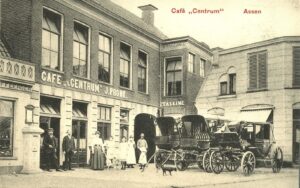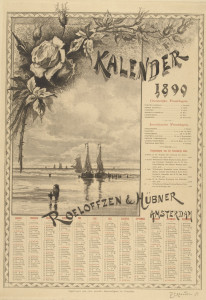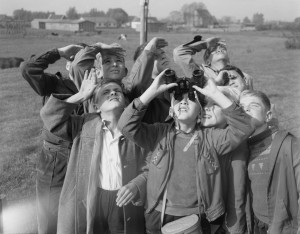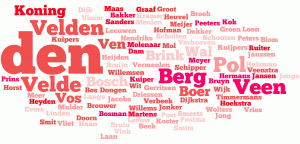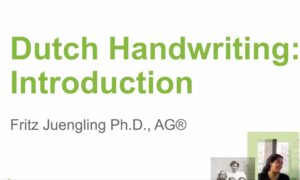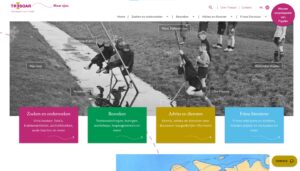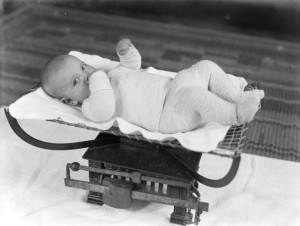When I was eleven years old, my mom and I went to the United States to visit her aunt and uncle in Washington, DC. It was my first time on an airplane, and my first time using English for real. I had been learning English for over a year, but had not had the opportunity for an actual conversation. We met our cousins, and some brought gifts for me. When I thanked them, they said "You're welcome." I felt all warm and fuzzy. How nice that these Americans were welcoming me to their country! And … [Read more...]
About this website
Creating a website like this is a fun activity. There are so many options, so many choices. What do visitors want? What do I want? In this blog I will describe some of the things I encounter in developing and maintaining this website.
Tip: Netherlands genealogy webinars at FamilySearch
Next Wednesday, on 10 November 2021, FamilySearch will host three free webinars about genealogy in the Netherlands: Netherlands Censuses and Population Registers (intermediate) Netherlands Notarial Records (Advanced) Netherlands Archive Spotlight: Friesland (Intermediate). See the FamilySearch list of upcoming webinars for times and registration links. … [Read more...]
Dutch Genealogy News for October 2021
This is an overview of the new website projects, and other news announced last month. Sources An index of the business files of the Chamber of Commerce of Drenthe 1922-1980 can be consulted at the Drents Archief website. The records show which businesses existed in Drenthe. Only businesses that no longer exist are included in the index. The records themselves are not digitized and can be consulted in the reading room. The Drents Archief also published an index of the Assen verdicts … [Read more...]
Quick tip – Dutch Dates are day-month-year
In the Netherlands, and many other countries, dates are written day-month-year. So 3-11-2021 is 3 November 2021, not March 11. Many original records spell out the month to avoid confusion, but you may encounter dates with numbers for the month in genealogical publications. … [Read more...]
Quick tip – Your ancestor was not born in Elders
In some online trees, you will see "Elders" as the place of birth. This is typically the result of a person who does not speak Dutch finding the reference in a Dutch record. However, "Elders" is not a placename, it means "elsewhere." … [Read more...]
Ask Yvette – Is my last name Dutch?
One of the questions I get asked frequently in person is whether a certain surname is Dutch. That can be tricky to answer, especially if a name got spelled differently after emigration. To find out where your name comes from requires genealogical research to trace the line that bears the last name back to its place of origin. That being said, here are a few resources to see if a last name occurs in the Netherlands: Database of surnames in the Netherlands. This is the first place to … [Read more...]
Quick tip – Intermediate course on Dutch handwriting
FamilySearch has created an intermediate course for learning how to read Dutch handwriting. In the course, Fritz Juengling discusses strategies and tools for learning how to read Dutch records. The free online course consists of sixteen videos. … [Read more...]
The three most relevant archives
When you are researching, there are archives/repositories at three different levels that may hold relevant records for you. They correspond with the three levels of government: municipality, province, and country. Local or regional archives Each municipality turns over their records to a local or regional archive. Examples of local archives are the Amsterdam City Archives or the Oldenzaal city archives. These municipalities have their own archivist rather than using the services of a regional … [Read more...]
Dutch Genealogy News for September 2021
This is an overview of the new sources, projects, and other news announced last month. Sources The authorization records of Harlingen 1762-1805 [appointments of guardianships] have been imaged and indexed and can be found on AlleFriezen. The town records of Oosterhout in Noord-Brabant 1328-1813 have been scanned. They can be accessed via the finding aid on the website of the Regional Archives of Tilburg. Several Amsterdam notarial records have now been automatically transcribed and … [Read more...]
Quick tip – The suffix ‘-je’
In the Dutch language, the suffix '-je' indicates a diminutive. Depending on the preceding word, it can be -je, -kje, -tje, -pje, or -etje; sometimes with an -n at the end. In Low Saxon dialects in the north-east of the Netherlands, -ke, -ske, -ken, -sken, or -chien are used. The diminutive suffix is used for nouns and names. Many female names are diminutive forms of male names. The diminutive form of a name is also used for a young child, so studying the name in context is necessary to … [Read more...]


